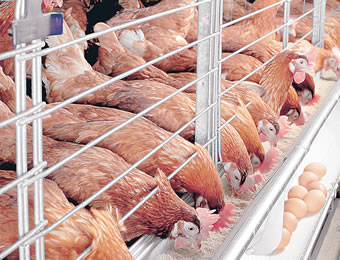There are no products in your shopping cart.
| 0 Items | £0.00 |


POULTRY feed prices have soared by as much as 168% across Nigeria over the last three years according to statistics published by the Centre for Journalism and Innovation Development (CJID).
In a survey which tried to probe why food prices have escalated so much of late, the report showed that on average, a 25kg of poultry feed, made mainly from maize, soybean, wheat, and millet, rose from N3,600 in 2019 to between N8,500 and N10,000 in July 2022. This rise is felt daily in homes as families pay more for chicken and eggs as a broiler sells for between N5,500 and N7,000 now as against N1,500 and N2,500 in 2018, while the price of a crate of eggs rose to N1,800 from N800.
Over the last year, Nigerian food prices rose by 20.6% according to the National Bureau of Statistics, with headline inflation increasing to 18.60% representing, a five-year high. Inflation worsened in 2019 after the government closed the country's borders to check smuggling and boost rice production and other essential food production.
However, low domestic production slowed supplies amid huge demand, driving prices. Then, the pandemic lockdowns, a shortage of foreign currency, insecurity, high fuel prices, and lately, Russia’s war in Ukraine complicated the problem.
Nigeria’s poultry industry, worth $4.2bn according to the United Nations Food and Agricultural Organisation, is a major protein source for over 200m people. However, the sector, which contributes 9% to 10% to the country's gross domestic product, has struggled in the last three years and many operators have abandoned their businesses due to high costs.
Abuja poultry farmer Juliet Ebere, said: “Poultry feed has tripled since I started the business in 2019, especially since security issues have challenged farmers from producing corn which is a major component of poultry feed.”
Farmers say they require approximately a kilogramme of starter feed to feed one broiler from week one to three. They need about 3kg of starter feeds for another three weeks and between week seven and eight, a broiler requires 2.5kg of finisher feed.
This totals to 650kg or 26 bags of feed for 100 broilers, adding up to N247,000. It would have been N93,600 just four years ago.